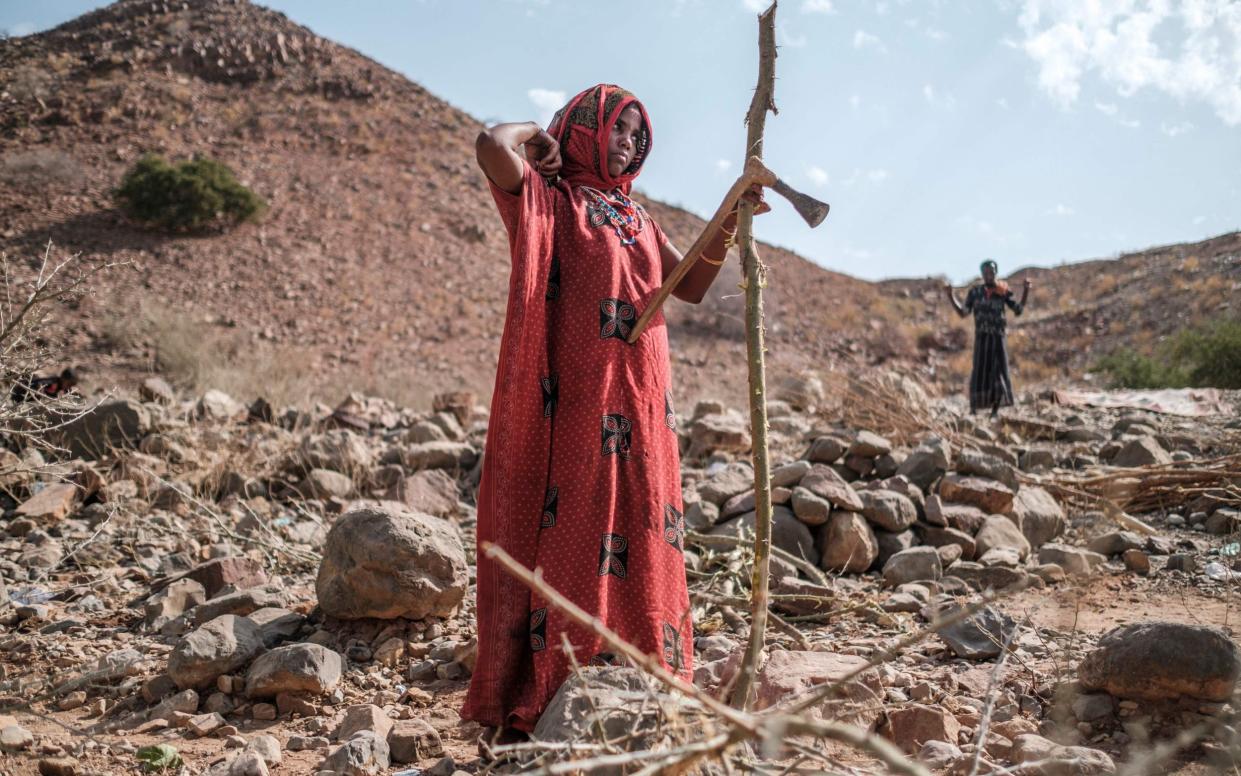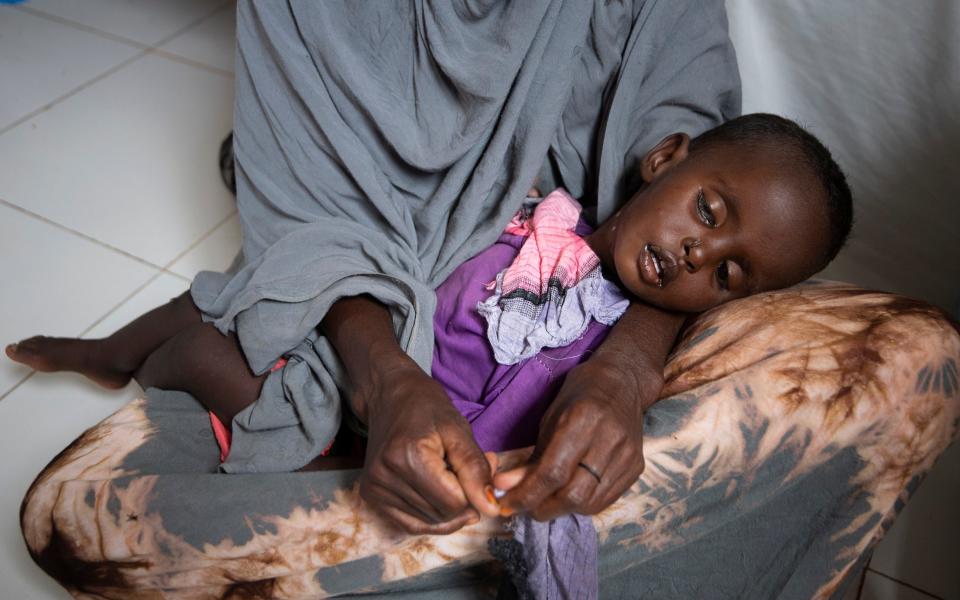‘Unimaginable’ loss of life to hit Horn of Africa, UK officials warn

The Horn of Africa is set to experience “unimaginable loss of life and suffering in the coming months”, the UK’s ambassador to Somalia has warned.
The region has been hard hit by the worst drought in more than 40 years, leaving 48 million people in the grips of acute food insecurity in the “world’s worst humanitarian crisis”.
More than one million people have now been forced to leave their homes, while 700,000 people are already facing famine in Somalia alone.
But there are mounting concerns that the situation is set to deteriorate come autumn, following forecasts indicating there will be a fifth failed rainy season.
“This the culmination of a crisis that has been building over the past four years,” Kate Foster, the UK’s ambassador to Somalia, told journalists. “In practical terms, that means less harvests, livestock in poorer condition, and people’s resilience declining year over year over year.
“We’re now at the point where that resilience is rock bottom,” she added. “Worryingly, forward-looking forecasts are now projecting a fifth failed rainy season… we may see unimaginable loss of life and suffering in the coming months without a continuing and significant scale up of activity.”
'Heart wrenching' situation
Ms Foster was speaking at a briefing by the Foreign, Commonwealth and Development Office (FCDO) to announce £14m of funding to tackle the food crisis in East Africa, part of a broader £36m investment to also respond to conflicts in Ukraine and Syria.
The Africa Minister, Vicky Ford, said the £14m was part of a commitment to provide £156m to support humanitarian needs across the Horn of Africa this financial year.
The latest funding means £76m has now been spent, with Friday’s announcement focused on averting famine through food aid, health and nutrition programmes in Somalia, Ethiopia and Sudan.

“It is amongst the most vulnerable people in Africa where the real full force of climate change has been most keenly felt,” Ms Ford said. “And then on top of that, Russia’s invasion of Ukraine has been exacerbating all these existing issues at the very worst time… [the situation] is just heart wrenching to the extremes of the imagination.”
She added that the UN estimates 386,00 children in the region will be severely malnourished and at risk of death by the end of the year, “around the same number of children as there are in primary schools in Scotland”.
However, humanitarian organisations have warned that the new funding falls well short of the need. Cuts to the UK’s foreign aid budget – which has been dropped from 0.7 to 0.5 per cent of GDP – coincided with a surge in global crises, from Ukraine to Afghanistan.
“Of course it is always welcome to hear that more funds are being allocated to humanitarian crises, and the UK is often a leader in emergency funding,” David Verboom, chief executive of Medair, told the Telegraph.
But he added: “With the hunger crisis [in the Horn of Africa], absolutely more funding is needed…. we are absolutely on the brink of famine and even with this announcement of new funding, there are still shortfalls.”
Alastair Russell, head of public affairs at Save the Children, also urged the UK to go further.
“The UK can do more to help stop this, but it must act now,” he said. “We need to see an investment of £70m for emergency therapeutic feeding to treat a million malnourished children. So we welcome this commitment from the UK government, but to save more lives we need to see action at greater scale and with greater urgency.”
Speaking on Thursday, Ms Ford said the UK was committed to scaling up support to avert the worst case scenario, and has been “working with partners to strengthen the overall humanitarian response from across the globe” because “no individual nation can solve this crisis alone”.
Protect yourself and your family by learning more about Global Health Security

 Yahoo Movies
Yahoo Movies 
